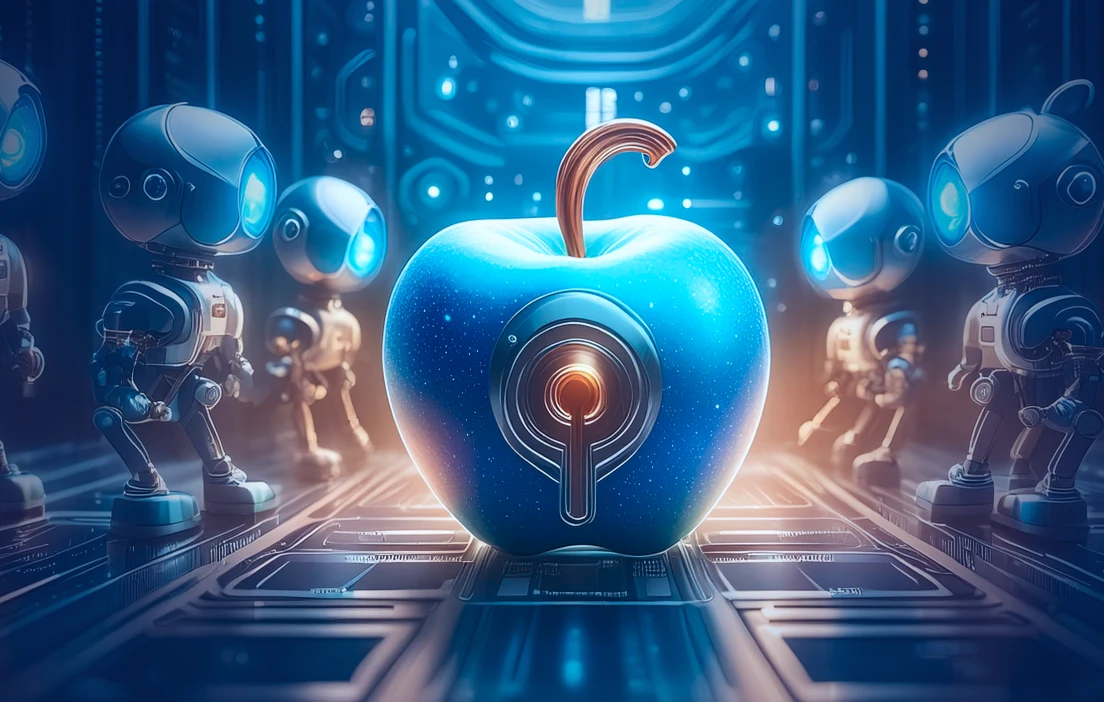Apple's recent WWDC keynote sent shockwaves through the tech world. Their new personal AI system, "Apple Intelligence," makes it seamless for users to interact with their devices, and leverage GenAI, while promising user privacy and security.
Elon Musk posted on X, “It’s patently absurd that Apple isn’t smart enough to make their own AI yet is somehow capable of ensuring that OpenAI will protect your security & privacy,” before adding, “If Apple integrates OpenAI at the OS level, then Apple devices will be banned at my companies. That is an unacceptable security violation.”
For years, Apple has championed user data security through on-device processing. Their new Private Cloud Compute (PCC) extends this model to the cloud, purportedly offering a secure environment for private AI processing.
But why the sudden push for on-device and private cloud AI? After all, consumers already have access to powerful generative models like OpenAI and Google Gemini through various apps.
The answer lies in the sensitive nature of user data. Public LLM models, while powerful, raise privacy concerns. Apple states that Apple Intelligence allows users easy access to valuable insights from their personal data without compromising privacy and security. This need presumably has Apple using confidential computing, although the exact technological details are unclear.
But what about the enterprise world, where the stakes are even higher? Companies are rapidly adopting Generative AI (GenAI) to gain a competitive edge. However, this rush towards innovation often overlooks a critical aspect – data security.
Every token generated by a GenAI system represents a piece of a company's trade secret and intellectual property. Protecting sensitive data throughout the GenAI lifecycle – ingestion, training, and inference – becomes paramount.
Can existing security solutions effectively safeguard sensitive data? At Fortanix, a leader in confidential computing, we believe the answer is no.
Here's the dilemma: Publicly available Large Language Models (LLMs) like OpenAI offer convenience but raise significant privacy concerns for businesses. Uploading sensitive data to train these public models exposes a company's most valuable assets – its data.
The current approach to GenAI security, especially for enterprises, is inadequate. Existing solutions often employ a patchwork of add-ons that are complex, slow, and ultimately, insufficient.
A Deeper Look: The GenAI Security Challenge
The pressure to meet market demands often leads companies to prioritize innovation over security. This is a recipe for disaster. Executive leadership needs to understand the immense risk and liability associated with unsecured GenAI deployments.
Every compromised piece of data is a potential breach of intellectual property, potentially crippling a company's competitive advantage.
Let's delve deeper into the specific security vulnerabilities plaguing current enterprise GenAI deployments:
- Data Ingestion: When sensitive data is ingested into a GenAI system, it becomes vulnerable to unauthorized access. Traditional security solutions often fail to adequately protect data at this critical stage.
- Training: During training, GenAI models learn from the data they are exposed to. If this data contains sensitive information, it can be inadvertently leaked or exploited.
- Inference: The final stage, inference, involves the model generating outputs based on the learned data. Malicious actors could potentially manipulate the inference process to steal sensitive information or skew the results.
Conclusion
Apple's stated commitment to user privacy in personal AI is a positive step forward for consumers. By prioritizing data security across all stages, businesses can unlock the true potential of GenAI without compromising sensitive information. This is unfortunately easier said than done.

 Cite this article
Cite this article









